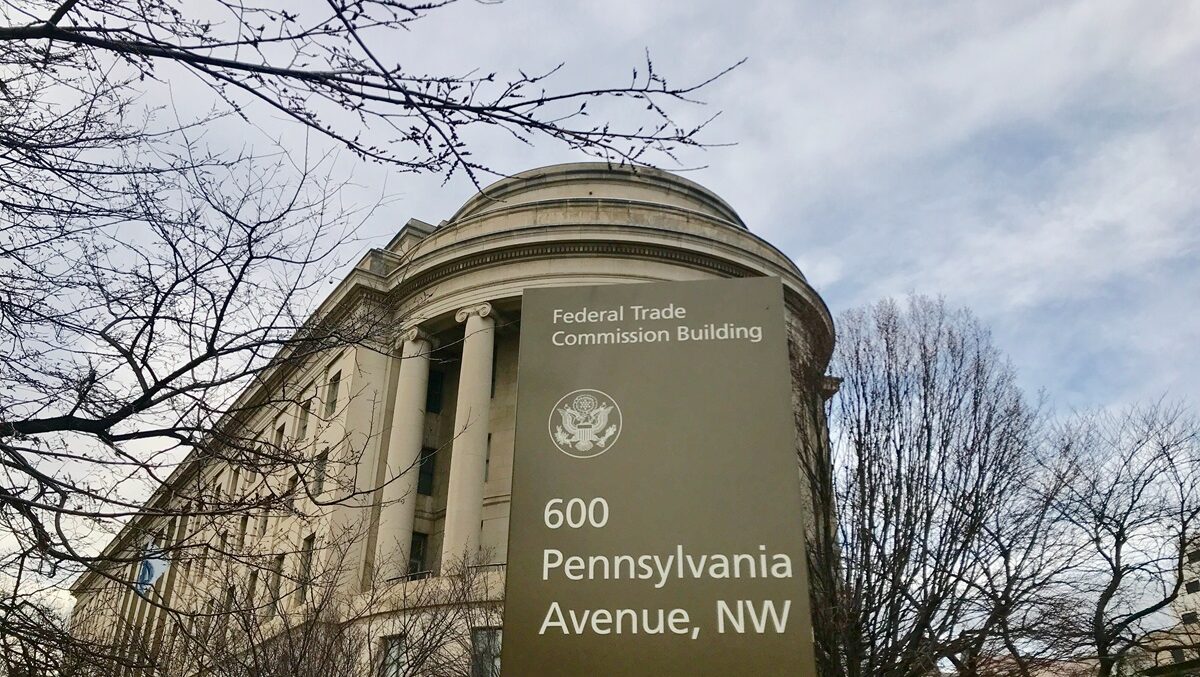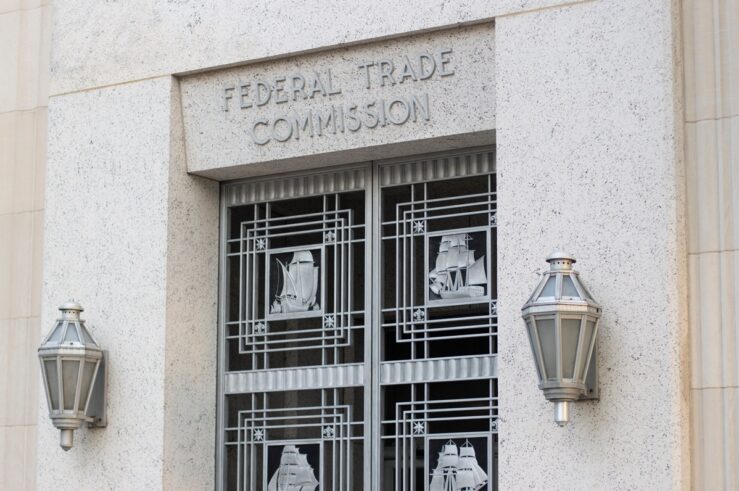
Are things looking up at the Federal Trade Commission (FTC)? Maybe, kinda, sorta? At the margin? That’s the agency spin.
Before we get to the new public relations, let’s take a step back. Much ink has been spilled, and many pixels specified, over the performance of FTC management. Not a little of it has attended survey evidence collected by the U.S. Office of Personnel Management and analyzed by the Partnership for Public Service for their annual rankings of the Best Places to Work in the Federal Government.® See, e.g., former FTC Commissioner Christine Wilson in the Wall Street Journal (here); Daniel Kaufman, a longtime FTC veteran and former acting director of its Bureau of Consumer Protection (here); the Washington Post (here); Bloomberg Law (here); your aging scribe (here); et cetera, et cetera.
A report from staff of the U.S. House Judiciary Committee here, a Senate investigation there, the unusual drill.
In brief, as of 2020, the FTC had long been near the top of the heap, finishing, for example, a close second among 25 mid-sized federal agencies in both 2019 and 2020, but conspicuously close to the basement, 22nd place, in the 2021 rankings, which were released in July 2022. One surmised that the drop in rankings had something to do with the new leadership at the agency, given that President Joe Biden designated Commissioner Rebecca Slaughter as acting chair as of Jan. 21, 2021, and with Lina Khan taking the helm in June of that year.
Also, the career staff’s ratings of senior staff dropped precipitously: for 2021, only about 27% of those surveyed strongly agreed with statement “my organization’s senior leaders maintain high standards of honesty and integrity,” and less than 23% strongly agreed with “I have a high level of respect for my organization’s senior leaders.” The numbers were actually worse the following year.
Not incidentally, the drop in the ratings coincided neatly with an unusually large number of departures. Dan Papscun, writing for Bloomberg Law, noted an exodus “at a pace not seen in at least two decades,” including the departure of “99 senior-level career attorneys” from 2021-22—comprising some 71 experienced GS-15 level attorneys and 28 from the senior executive service.
A recent study by Howard Beales (former director of the FTC’s Bureau of Consumer Protection) and former FTC Chairman Tim Muris (“Achieving Change at the Federal Trade Commission”) devotes a chapter to Chair Khan’s management of the agency, as distinct from her policy agenda. They do not paint a pretty picture. Among the many self-inflicted wounds described:
The new Chair’s relationship with the career staff began with a series of insults. A few weeks after her appointment, with Chair Khan at his side, the President of the United States told the world, including an FTC staff proud of its role in an agency widely acclaimed, largely bipartisan, and consensus driven that it was part of a 40 year failed experiment.
A 40-year failed experiment? Et tu, Joe? And Lina? And Tim Wu? Ouch. So casually cruel in the name of being honest, as Ms. Taylor Swift might say.
Not the best way to rally the troops to one’s agenda. But then again, it was the tip of the iceberg, really, and it’s not as if Chair Khan hadn’t said very similar things herself already. It’s also not as if Commissioner Rohit Chopra hadn’t been insulting the staff from his first day in the building—early and often, as they used to say about Chicago voting.
It did seem a bit of a flub as a debut (thanks, Tim Wu), but as mismanagement goes, I’m not sure it holds a candle to, for example, appointing an aggressive, inexperienced, nonlawyer, noneconomist, politico as chief of staff.
But I guess it’s all better now. The FTC recently touted its turnaround on X (the platform formerly known as Twitter):

So, wow, and silly me for running off to the International Center for Law & Economics (ICLE), an independent research center, instead of biding my time.
Or . . . maybe not.
There’s an open question whether “the top 10 list” is literally false or merely misleading. I mean, there are separate rankings for large, midsized, and small federal agencies, so it’s at best “a” top 10 and not “the” top 10. And then there’s the fact that there was a three-way tie for 9, 10, and 11. So the FTC’s total ranking wasn’t worse than number 11, but it wasn’t better either.
And it’s not clear that the Partnership for Public Service actually has one, two, or three top-10 lists, so much as ordinal rankings from top to bottom. And there’s the simple fact that so many experienced staff left in the interim, with the departures likely skewing toward non-fans of the new management.
To be fair, 9, 10, or 11 is better than 22. And the aggregate ratings of employee satisfaction were somewhat better.
And what about the staff’s views of management? The survey lets us drill down by agency subcomponents. So, for example, if we look at the FTC Bureau of Competition, which is mainly charged with the FTC’s enforcement of the antitrust laws, it turns out that the overall “engagement and satisfaction score” is 58.9 (vs 91.4 in 2020). To put that score into context, that means the bureau staff’s ranking put the FTC in 407th place out of 458 total federal agency divisions (“sub-agencies”). Which seems less than wonderful. And while 91% of Bureau of Competition staff rate their immediate supervisors favorably, only 34.1% rated senior leaders favorably, placing them 456 out of 458 federal sub-agencies. Which is not in the top 10. Or the top 400.
What about the economists? A little better, but only a little. Terrific on the immediate supervisors, with Bureau of Economics supervisors scoring number 1 among the 458 sub-agencies. Hats off to those veterans serving as assistant directors in the bureau. But the economists’ views of senior leadership remained . . . well, lousy: 453 out of 458.
Senior leadership fared better among the attorneys in the Bureau of Consumer Protection—notably better. Still, 306 out of 458 is not in the top 10, or the top half for that matter, so it seems nothing to crow about.
There’s a sense in which the split (or yawning chasm) between the supervisor and senior leadership rankings are reassuring: they seem to suggest that the lower-level and mid-tier supervisors are doing a pretty good job of insulating the staff from the worst instincts of the senior leaders, at least on a day-to-day level (and that the staff knows it).
For what it’s worth, staff at the U.S. Justice Department (DOJ) Antitrust Division don’t seem the happiest of Kanters . . . I mean, campers, either. Although 354 out of 459, while terrible, is not as bad as the rankings from the FTC’s competition and economics bureaus.
But I’m not sure that any of the commissioners or political hires should run out and buy “how am I doing?” bumper stickers. Remember the consumer-protection prong of Section 5 of the FTC Act? That prohibits “unfair or deceptive acts or practices in or affecting commerce.” Deceptive or misleading acts (ads, marketing, various omissions, and other practices) are barred if they are material to consumers and not offset by countervailing benefits to consumers or competition. And FTC leadership is terribly interested in labor these days so . . . well, actually, they cannot haul themselves into court (or administrative proceedings) even if they wanted to, and something tells me that they don’t want to.
I’m not sure what to say about the new hires. Still, many capable—indeed excellent—lawyers and economists remain at the agency. There are perfectly good reasons for that, even if none of those reasons seemed good enough to me in 2022. Hats off to them, to the extent that they can still do proper work and perhaps palliate the worst contortions of the law and economics that leadership has to offer.
I hope that the good abides. It was a cool place to work once. I was there. I remember it oh so well.




